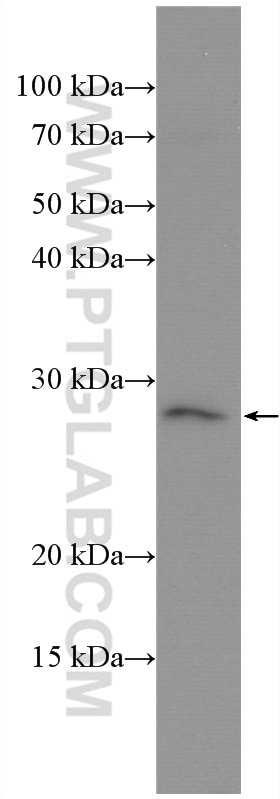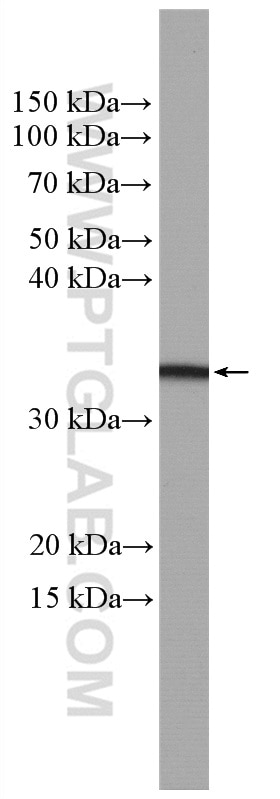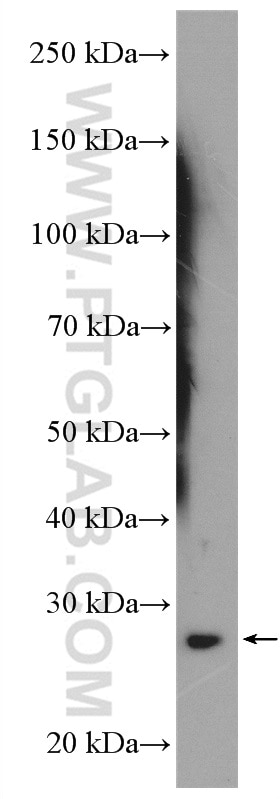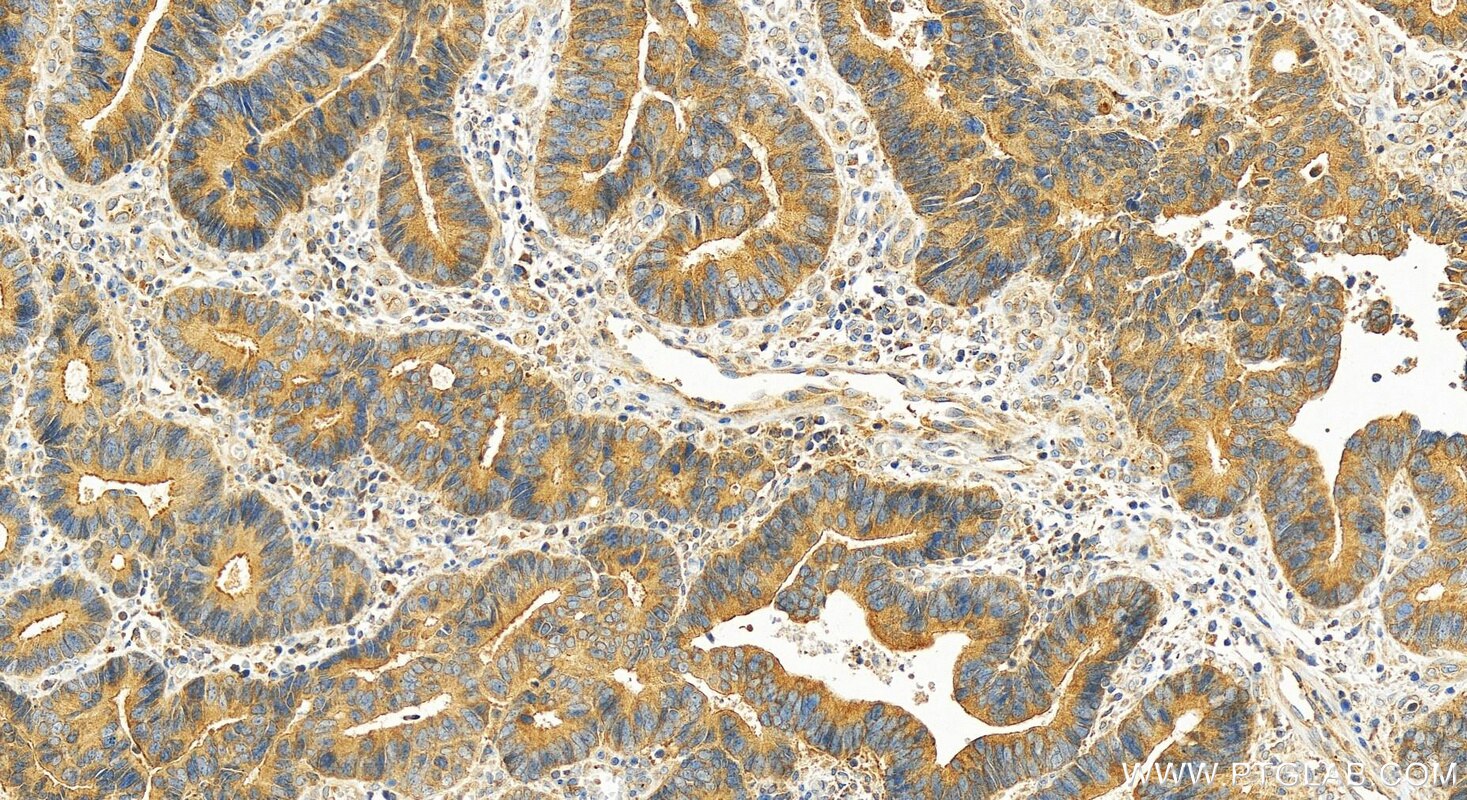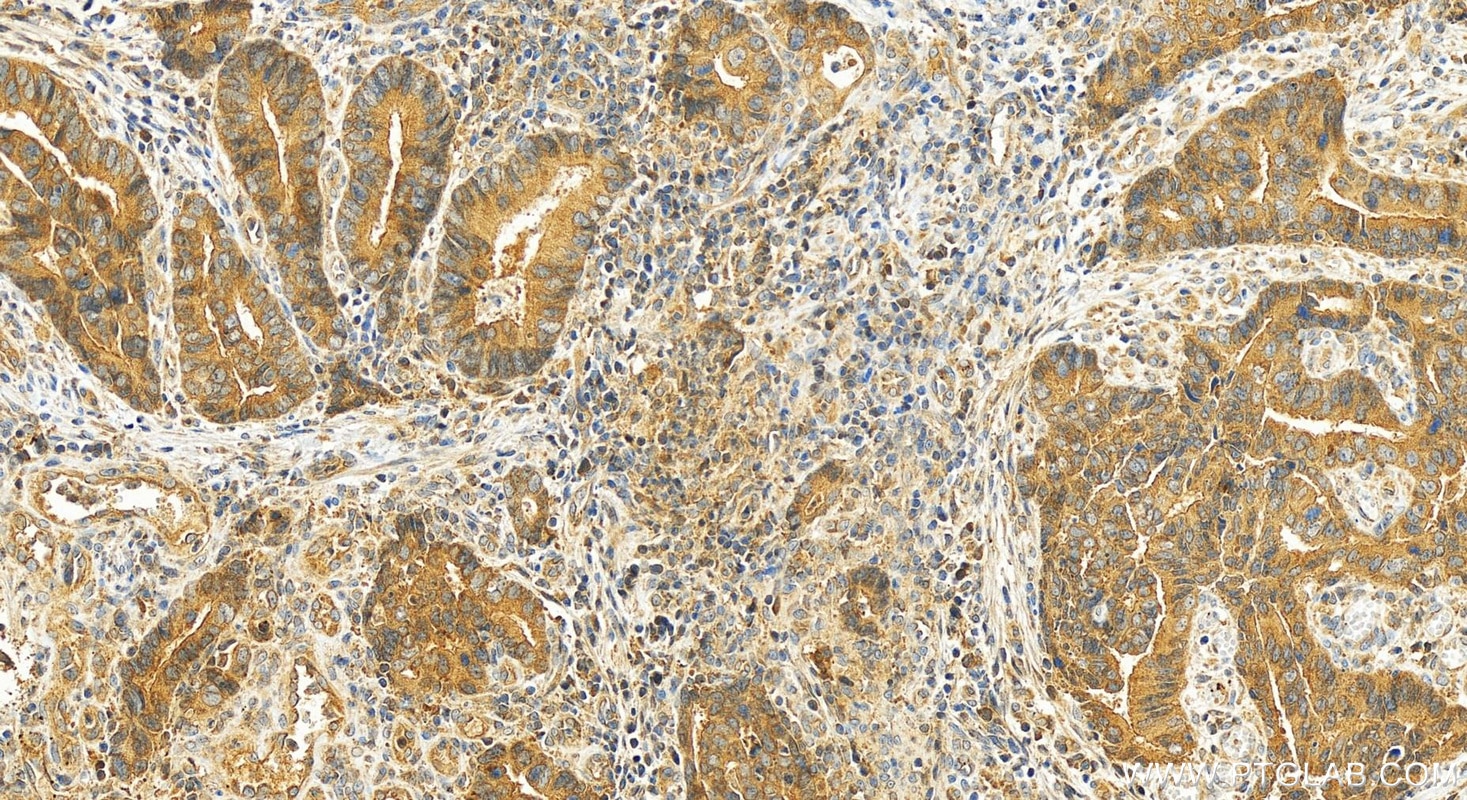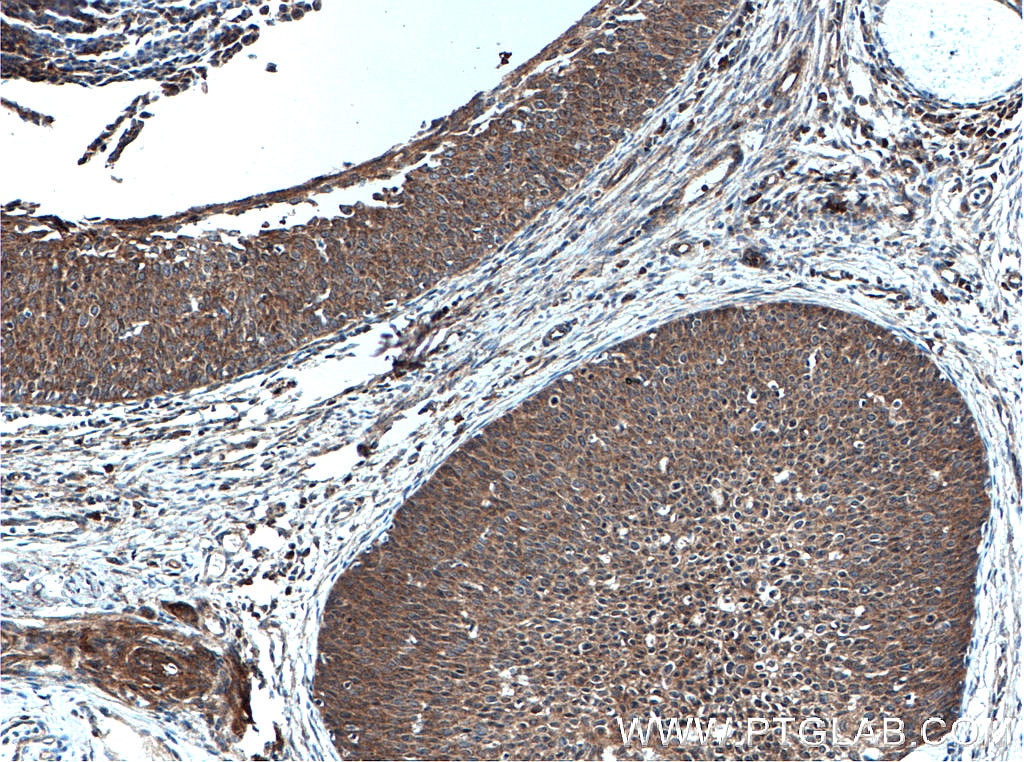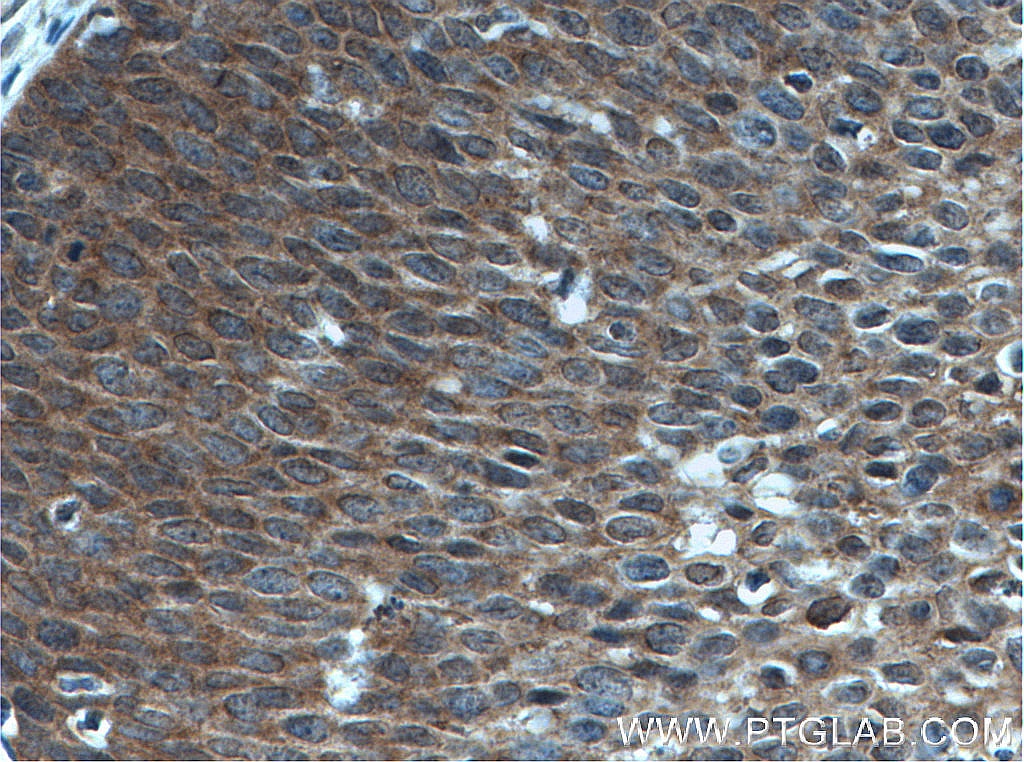Validation Data Gallery
Tested Applications
| Positive WB detected in | MCF-7 cells, Jurkat cells, rat testis tissue |
| Positive IHC detected in | human colon cancer tissue, human cervical cancer tissue Note: suggested antigen retrieval with TE buffer pH 9.0; (*) Alternatively, antigen retrieval may be performed with citrate buffer pH 6.0 |
Recommended dilution
| Application | Dilution |
|---|---|
| Western Blot (WB) | WB : 1:500-1:2000 |
| Immunohistochemistry (IHC) | IHC : 1:50-1:500 |
| It is recommended that this reagent should be titrated in each testing system to obtain optimal results. | |
| Sample-dependent, Check data in validation data gallery. | |
Published Applications
| WB | See 1 publications below |
| IHC | See 2 publications below |
| IF | See 1 publications below |
Product Information
27792-1-AP targets Oncostatin M in WB, IHC, IF, ELISA applications and shows reactivity with human, rat samples.
| Tested Reactivity | human, rat |
| Cited Reactivity | human, mouse |
| Host / Isotype | Rabbit / IgG |
| Class | Polyclonal |
| Type | Antibody |
| Immunogen |
CatNo: Ag27093 Product name: Recombinant human OSM protein Source: e coli.-derived, PGEX-4T Tag: GST Domain: 26-221 aa of BC011589 Sequence: AAIGSCSKEYRVLLGQLQKQTDLMQDTSRLLDPYIRIQGLDVPKLREHCRERPGAFPSEETLRGLGRRGFLQTLNATLGCVLHRLADLEQRLPKAQDLERSGLNIEDLEKLQMARPNILGLRNNIYCMAQLLDNSDTAEPTKAGRGASQPPTPTPASDAFQRKLEGCRFLHGYHRFMHSVGRVFSKWGESPNRSRR 相同性解析による交差性が予測される生物種 |
| Full Name | oncostatin M |
| Calculated molecular weight | 252 aa, 28 kDa |
| Observed molecular weight | 28 kDa |
| GenBank accession number | BC011589 |
| Gene Symbol | OSM |
| Gene ID (NCBI) | 5008 |
| RRID | AB_2880974 |
| Conjugate | Unconjugated |
| Form | |
| Form | Liquid |
| Purification Method | Antigen affinity purification |
| UNIPROT ID | P13725 |
| Storage Buffer | PBS with 0.02% sodium azide and 50% glycerol{{ptg:BufferTemp}}7.3 |
| Storage Conditions | Store at -20°C. Stable for one year after shipment. Aliquoting is unnecessary for -20oC storage. |
Background Information
Oncostatin M (OSM) is a multifunctional cytokine that belongs to the interleukin-6 (IL-6) family. It is primarily secreted by activated T lymphocytes and macrophages as a 28 kDa glycoprotein. OSM shares properties with all members of this cytokine family, but is most closely related in structure and function to leukemia inhibitory factor (LIF). OSM acts on a variety of cells and is involved in regulating gene activation, cell growth, and inflammatory processes. It is a potent inducer of anti-proteases, has anti-inflammatory properties, acts as an immune modifier, and promotes the deposition of extracellular matrix proteins . In the context of respiratory diseases, OSM may play a significant role in normal wound healing, as well as in remodeling and pathological fibrosis.
Protocols
| Product Specific Protocols | |
|---|---|
| IHC protocol for Oncostatin M antibody 27792-1-AP | Download protocol |
| WB protocol for Oncostatin M antibody 27792-1-AP | Download protocol |
| Standard Protocols | |
|---|---|
| Click here to view our Standard Protocols |
Publications
| Species | Application | Title |
|---|---|---|
Jpn J Ophthalmol Role of oncostatin M in the pathogenesis of vernal keratoconjunctivitis: focus on tissue remodeling. | ||
Neoplasia β-Catenin mediated TAM phenotype promotes pancreatic cancer metastasis via the OSM/STAT3/LOXL2 axis | ||
Int J Radiat Oncol Biol Phys Oncostatin M/Oncostatin M Receptor Signal Induces Radiation-Induced Heart Fibrosis by Regulating SMAD4 in Fibroblast |

